JOBS AND SKILLS FACILITY

Youth employment
JOBS AND SKILLS FACILITY
The Jobs Facility aims to strengthen the capacity of interested countries to design, implement, monitor, and evaluate employment and training policies in a more participatory, sustainable, and effective manner.
What is it?
The Jobs Facility consists of several components:
- A self-assessment framework for employment and training systems, implemented through co-developed positioning tools with partner countries.
- An adapted toolbox of technical resources to address the needs identified by partner countries through the self-assessment process.
- Technical and financial support to deploy these tools, advise and assist stakeholders in order to sustainably improve the performance of employment and training policies.
- While the Jobs Facility receives technical and financial support for its initial phase from the Agence Française de Développement, it is intended to be consolidated and sustained by any other development actor wishing to support advisory services and capacity-building for employment and training policies.
How does it work?
The Jobs Facility supports partner countries in a process based on social dialogue to enhance capacities in the field of employment and training.
This process involves four stages:
- Conducting a situational analysis to establish a shared understanding of the country's situation and its employment demand and supply policies.
- Defining development priorities for the employment and training system based on the self-assessment using Jobs Facility positioning tools.
- Developing a capacity-building program for key tripartite actors to address challenges and difficulties within the system.
- Implementing the Jobs Facility program, providing support to stakeholders in the partner country.
key informations
Objective
The primary objective is to promote inclusive economic growth and decent work by supporting countries in developing effective strategies, policies, and programs for employment creation, skills development, and entrepreneurship.
Targeted Countries
The Jobs and Skills Facility operates in various countries across the globe, partnering with governments, employers' organizations, workers' organizations, and other stakeholders.
Comprehensive Approach
The facility takes a comprehensive approach to tackle employment challenges by combining different strategies.
- Ensure partnership, multi-level and multi-actor governance guaranteeing an inclusive employment-training system that contributes to the socio-economic prosperity of citizens
- Governance is articulated around two sub-functions:
- Development of public policies and strategies
- Management of the employment-training system
The education system of the Republic of Congo is organized into three cycles, primary, secondary and higher. Primary education, which is organized over six years, is awarded with a primary and elementary study certificate. Secondary education is organized over four years of middle school and three years of high school, leading to a Brevet d’Etude du Premier Cycle and a Baccalauréat respectively. As for the higher education system, it is provided by several higher education establishments (Universities, schools and specialized higher institutes).
Download the full report here:
During the period 2016-2025, the employment-training ecosystem of Côte d'Ivoire saw the implementation of a process of reflection on employment and professional training policies. This process was crowned by the development of a National Plan for the Reform of Technical Education and Vocational Training (PNRETFP) 2016-2025, the National Employment Policy (PNE) 2016-2020 and the National strategy for professional integration and youth employment (SNIEJ) 2021-2025.
Download the fill report here:
In Morocco, education and professional training constitute a major priority and a significant factor in enriching human capital. They are anchored at the heart of the project to develop the new development model. Morocco has made the promotion of quality education the transformative force that links the sustainable development goals and thus contributes to their achievement, in particular SDG 4 which aims to ensure access to education for all and promote lifelong learning opportunities.
Download the full report here:
In Senegal, the PNE is based on six main strategies: massive job creation in the Emerging Senegal Plan (PSE), in the major projects of the Head of State and in traditional economic systems; the development of specific public programs for the creation of decent jobs; the development of employment programs at the local level; improving and developing relationships between training and employment; improving the organization of the labor market and social dialogue; and capacity building of the ministry responsible for employment.
Download the full report here:
How to contact the Jobs Facility?
Countries interested in benefiting from the support of the Jobs Facility can get in touch with the International Training Centre of the ILO at the following address: jobsfacility@itcilo.org





